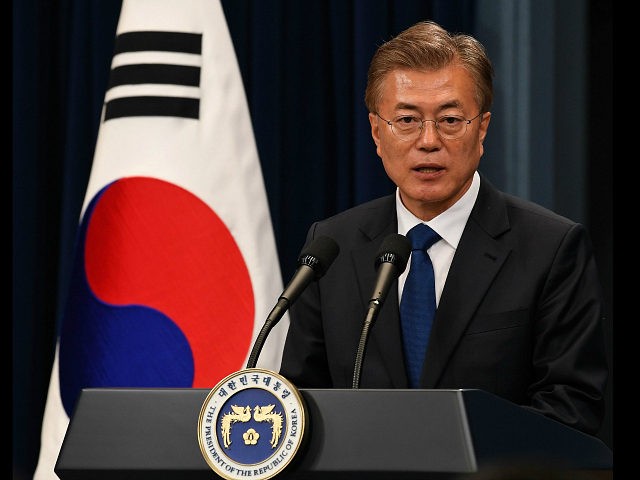South Korean officials on Friday unveiled a program for “everyday life quarantine” that is essentially a two-year roadmap back to normalcy after the coronavirus pandemic.
The guidelines lay out a strategy for resuming commerce and social activities with social distancing techniques.
Yonhap News said the plan includes guidelines in “31 areas, covering almost every situation that people would face in their daily lives,” beginning with the now-familiar admonitions to wash your hands thoroughly, maintain a safe distance of two meters, and self-quarantine at the first sign of coronavirus symptoms.
The guidelines also recommend social and commercial changes such as bowing instead of shaking hands, using teleconferencing instead of face-to-face encounters when possible, limiting mass gatherings, and wearing face masks at gatherings that do occur. Restaurants and other service operations were advised to redesign seating with social distancing in mind, creating space around tables and situating guests in zig-zag patterns to keep them apart.
“These guidelines were created with a purpose of balancing people’s daily lives and quarantine activities and aim to begin with people’s understanding and participation. The guidelines are also prepared with a mind that they can be upgraded with people’s creative ideas,” said Vice Health Minister Kim Gang-lip.
Reuters saw the plan as a long, slow march back to normalcy over the next two years, while Quartz thought it was more like a foundation for a “new normal” of perpetual militancy against future pandemics.
The name “everyday life quarantine” certainly seems to convey the impression that some of the basic social distancing techniques are here to stay. The notion of a return to normal by 2022 comes from the vice health minister describing the plan as a “transition to a sustainable routine distancing scheme” and remarking that experts believe the Wuhan coronavirus could remain a threat for up to two years.
The guidelines for post-pandemic retail operations, for instance, suggest that each business should forevermore designate a “quarantine manager” to coordinate with health officials and ensure the everyday life quarantine measures are implemented correctly. Such practices as giving free samples to customers and holding high-energy sales events that would draw packed crowds of shoppers are discouraged. The recommended changes to commercial seating and public adoption of basic social distancing techniques sound like permanent changes to South Korea’s way of life.
According to the South Korean Health Ministry, the guidelines are subject to revision with input from the public, and none of them is meant to carry the force of law.
South Korea’s current coronavirus status is excellent, with only six new cases and zero fatalities. The totals for the country stand at 10,708 infections and 240 deaths.
“Widespread testing, intensive contact tracing and tracking apps have enabled South Korea to limit the spread of the virus with social distancing rather than lengthy lockdowns,” Reuters noted.

COMMENTS
Please let us know if you're having issues with commenting.